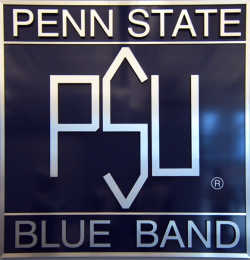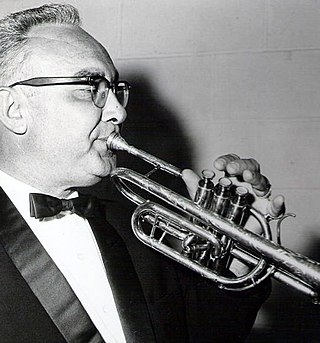
The Ivy League is an American collegiate athletic conference of eight private research universities in the Northeastern United States. The term Ivy League is used more broadly to refer to the eight schools that belong to the league, which are globally-renowned as elite colleges associated with academic excellence, highly selective admissions, and social elitism. The term was used as early as 1933, and it became official in 1954 following the formation of the Ivy League athletic conference.

The University of Pennsylvania is a private Ivy League research university in Philadelphia, Pennsylvania, U.S. It is one of nine colonial colleges and was chartered prior to the U.S. Declaration of Independence when Benjamin Franklin, the university's founder and first president, advocated for an educational institution that trained leaders in academia, commerce, and public service. Penn identifies as the fourth oldest institution of higher education in the United States, though this representation is challenged by other universities, as Franklin first convened the board of trustees in 1749, arguably making it the fifth oldest institution of higher education in the U.S.

The Palestra, often called the Cathedral of College Basketball, is a historic arena and the home gym of the Penn Quakers men's and women's basketball teams, volleyball teams, wrestling team, and Philadelphia Big 5 basketball. Located at 235 South 33rd St. in Philadelphia, Pennsylvania on the campus of the University of Pennsylvania, near Franklin Field in the University City section of Philadelphia, it opened on January 1, 1927. The Palestra has been called "the most important building in the history of college basketball" and "changed the entire history of the sport for which it was built".

Edwin Franko Goldman was an American composer and conductor. One of the most significant American band composers of the early 20th century, Goldman composed over 150 works, but is best known for his marches. He founded the renowned Goldman Band of New York City and the American Bandmasters Association. Goldman's works are characterized by their pleasant and catchy tunes, as well as their fine trios and solos. He also encouraged audiences to whistle/hum along to his marches. He wrote singing and whistling into the score of "On the Mall".

The Princeton University Band serves as the marching band and pep band of Princeton University. Like most other Ivy League bands, it is a scramble band. To members and fans, it is often known as the PUB or simply The Band. Many alumni refer to it as the Tiger Band.

Alton Augustus Adams, Sr. is remembered primarily as the first black bandmaster in the United States Navy. His music was performed by the bands of John Philip Sousa and Edwin Franko Goldman and his march "The Governor's Own" (1921) appears as the first selection on the bicentennial album Pride of America, released by New World Records.

The Pennsylvania State University Marching Blue Band, known generally as the Blue Band, is the marching band of Pennsylvania State University. Founded in 1899, it is the largest recognized student organization at the University Park campus of Penn State, with over 300 active student members. The primary function of the Blue Band is to support the school's football team, performing for all home football games at Beaver Stadium.

The American Bandmasters Association (ABA) was formed in 1929 by Edwin Franko Goldman to promote concert band music. Goldman sought to raise esteem for concert bands among musicians and audiences. The reputations of concert bands suffered in comparison to symphony orchestras due to factors including "the concert band’s concert venue, often out-of-doors, the difficulty of conductors to obtain a quality music education, a limited repertoire that with the exception of marches was largely borrowed from the libraries of the orchestra, and a lack of camaraderie among the leading bandmasters/conductors of the period."
University of Pennsylvania student life includes numerous events and social gatherings around campus, with some sponsored by the college.

The Thunder of the East is the marching band of the University at Buffalo in the State University of New York system. UB's first marching band was created in 1920, and disbanded in 1927. It was revived in 1946, increasing in size and reputation until about 1970. It was known as "The Pride of the East." At that time, it was dissolved upon UB's departure from Division I athletics. In 1981, some UB students continued the tradition of playing music at UB's home football and basketball games by forming UB's Pep Band. In anticipation of UB's return to Division I athletics, a marching band was formed in 1999 and named, "Thunder of the East." The band debuted at the University at Buffalo Stadium on September 11, 1999. The Thunder of the East is currently led by James E. Mauck; and performs at UB's Buffalo Bulls home football games, as well as in other musical venues.

The Penn Quakers are the athletic teams of the University of Pennsylvania. The school sponsors 33 varsity sports. The school has won three NCAA national championships in men's fencing and one in women's fencing.

Ernest S. Williams was a prominent American band conductor, cornet soloist, composer, and music educator.
Robert "Greer" Cheeseman III is the current director of The University of Pennsylvania Band. He served as assistant director to the band following his graduation from Penn in 1977 and was promoted to director in 1994.
The University of Pennsylvania College of Arts & Sciences (CAS) is the oldest undergraduate college at the University of Pennsylvania, a private Ivy League university, situated on the university's main campus in University City, Philadelphia. The college traces its roots to the establishment of a secondary school known as Unnamed Charity School in 1740. In 1749, Benjamin Franklin and twenty-one leading citizens of Philadelphia officially founded a secondary school named Academy of Philadelphia. In 1755, the secondary school was expanded to include a collegiate division known as College of Philadelphia. The secondary and collegiate institutions were known collectively as The academy and College of Philadelphia. The college received its charter from Thomas Penn and Richard Penn. Penn CAS is the oldest institution of higher learning in the state of Pennsylvania and the sixth-oldest chartered college in the United States.
The 1962 Penn Quakers football team was an American football team that represented the University of Pennsylvania during the 1962 NCAA University Division football season. Penn finished sixth in the Ivy League.
The 1964 Penn Quakers football team was an American football team that represented the University of Pennsylvania during the 1964 NCAA University Division football season. Penn finished last in the Ivy League.
The 1965 Penn Quakers football team was an American football team that represented the University of Pennsylvania during the 1965 NCAA University Division football season. Penn finished sixth in the Ivy League.
The 1966 Penn Quakers football team was an American football team that represented the University of Pennsylvania during the 1966 NCAA University Division football season. Penn finished second-to-last in the Ivy League.
The 1974 Penn Quakers football team was an American football team that represented the University of Pennsylvania during the 1974 NCAA Division I football season. Penn finished third in the Ivy League.

James Francis Burke was an American cornet soloist. He was the principal cornet soloist with the Goldman Band from 1943 to 1974. He was also the principal trumpet with The Baltimore Symphony Orchestra from 1943 to 1949. Mr. Burke, who had the use of only one arm, was considered the greatest virtuoso of his time on the instrument, according to Ainslee Cox, conductor of the Guggenheim Memorial Band.
















